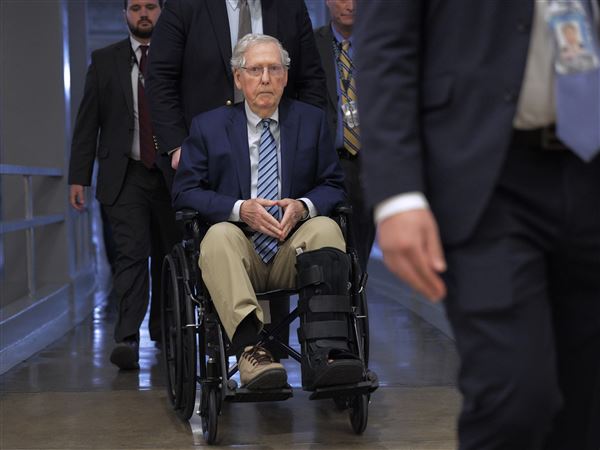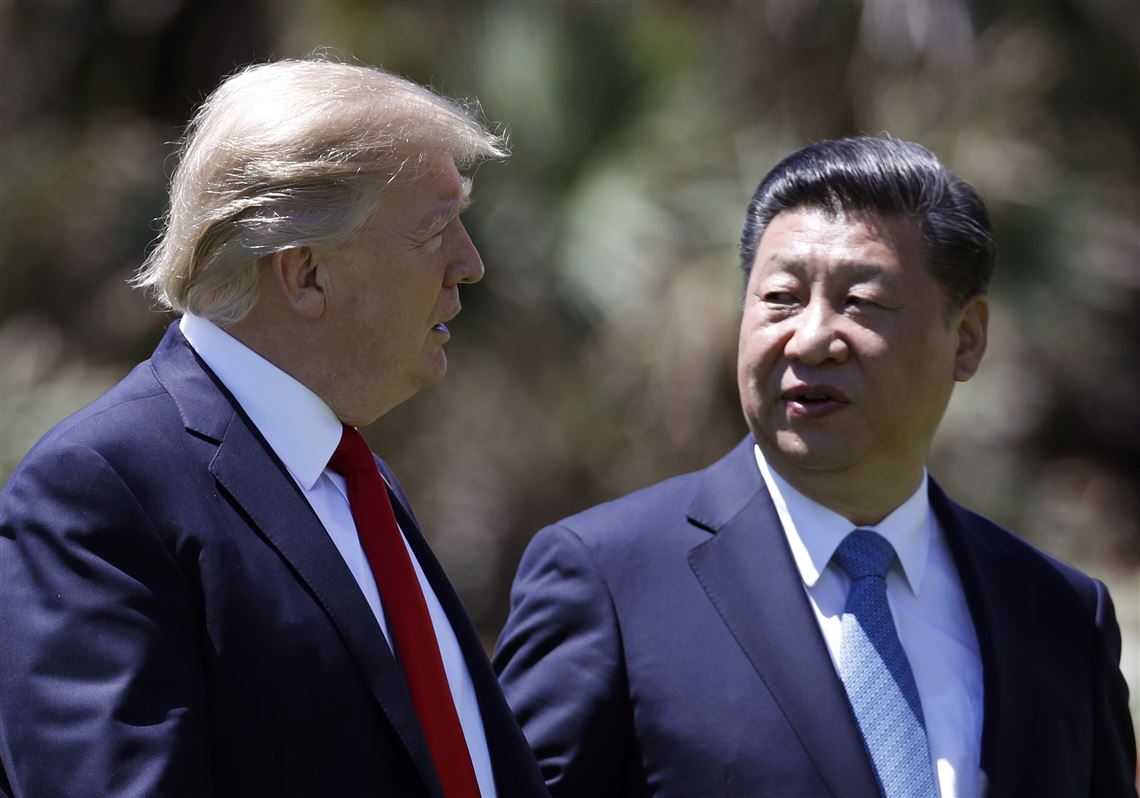Even for President Donald J. Trump, who minced words on virtually nothing during his campaign, his rhetoric on trade was especially seething from the start.
“We can’t continue to allow China to rape our country,” Mr. Trump the candidate told supporters in May 2016, lambasting the trade deficit and blaming millions of lost jobs on artificially cheap Chinese imports dumped in the United States.
That’s why Mr. Trump’s comment this week that he no longer thinks China is intentionally devaluing its products was, in the words of one trade analyst, a “stunning” reversal.
The move to back away from accusing China of currency manipulation also angered workers in the steel industry, which has been a leading voice in a chorus of criticism of Chinese dumping for the last two decades — and who believed Mr. Trump’s tough talk.
On Thursday, the United Steelworkers released a lengthy statement condemning the change in tone.
“Time and time again, workers across this country have seen their economic interests traded away for foreign policy goals,” the USW stated. “As a candidate, Donald Trump criticized this approach, but now he seems to be following the same path.”
Some political analysts have suggested Mr. Trump agreed to drop his major trade issues in exchange for Chinese cooperation on North Korea. Mr. Trump had dinner with the Chinese President Xi Jinping last week.
The USW statement went on to say workers have fallen victim to political bartering once again: “Workers are still not interested in having their jobs used to incent China to help deal with the nuclear threat of North Korea ... The president’s recent statements send a signal that he may be just another politician saying one thing to get elected and doing something else once in office.”
Industry officials and analysts said there could be no major resolution on trade issues without first tackling the politically thorny issue of currency manipulation — that is, whether China has taken actions to make its exports more appealing than domestic products.
The magnitude of the currency issue is immense.
Chinese trade policies triggered the loss of about 3.4 million U.S. jobs, and 136,700 jobs in Pennsylvania, from 2001 to 2015, according to a report released in January by the Economic Policy Institute, a Washington, D.C., think tank that backs policies supporting the lower and middle classes.
Cheap Chinese competition also pulled down the wages of the average American worker by $1,800 annually, and the U.S. trade deficit with China grew from $83 billion to $367 billion, according to the report.
“The fact remains that the most effective way to reduce China’s trade surplus with the world is to somehow raise the value of their currency,” said Robert Scott, senior economist for institute and the report’s author.
Recent research has estimated the Chinese yuan must rise in value by at least 30 percent, among other things, to bring global trade back in balance, Mr. Scott said. The best way of doing that, he said, is for Congress and the president to work together on legislation that could pressure China.
For Mr. Trump to suddenly step away from using the label is “stunning,” he said.
In a bright spot for trade critics, the Trump administration this week imposed antidumping tariffs on imports of high-quality steel pipes from South Korea. The U.S. Department of Commerce imposed the tax after agreeing with Maverick Tube Corp., a Missouri-based maker of steel products for the energy industry that brought the case, that the imports were unfairly priced.
Alan Price, a trade lawyer with Washington, D.C.-based Wiley Rein LLP, which represented Maverick in the case, praised the Commerce Department’s decision as “groundbreaking.” It was the department’s first decision under a law enacted in 2015 that allowed it to consider any “particular market situation” within a foreign country that could distort prices and, in those cases, impose tariffs to level the playing field.
“We are thankful to the administration for its efforts to fully and aggressively enforce the new law,” Mr. Price said. The agency can finally account for “distortions such as those caused by steel subsidies and persistent overcapacity problems in China and Korea,” he added.
The core of the problem, however, is much larger than what any targeted enforcement action can solve, said Scott Paul, president of the Alliance for American Manufacturing.
As he explained it, China had excess capacity and undervalued products across more than a dozen industries, including makers of aluminum, plastic and glass. Even Chinese solar panels are flooding the U.S. market, pushing domestic solar producers out of business, he said.
Therefore, currency manipulation is the “macro” issue at hand because it’s baked into all Chinese products at once, Mr. Paul said.
“The use of an exchange rate to gain an advantage is something that requires an aggressive solution,” he said. “It’s clear that the market over time is not going to correct it on its own.”
Mr. Paul said he saw Mr. Trump’s reversal as a “missed opportunity.”
“If China has the opportunity to undervalue its currency, it will,” he said. “We should slap them with the (currency manipulation) label and make them earn their way back from it. That’s the approach I thought Trump would take, and I’m disappointed he’s not.”
Daniel Moore: 412-263-2743 or dmoore@post-gazette.com. Twitter @PGdanielmoore.
First Published: April 14, 2017, 4:26 a.m.

















